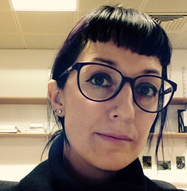Dr Marina Everri

Marina Everri’s research interest focuses on the interactive and communicative processes occurring in families, and on the ways in which these processes are constructed, maintained and transformed during the life course. While as a social psychologist, she is interested in interpersonal communication and interaction, collaboration with developmental psychologists and anthropologists has allowed her to develop an increasing interest in the role of language and culture in interaction and to improve methodological skills in ethnography. Her interdisciplinary background prompts and enables her to explore the interplay of individual, interpersonal and cultural processes. In her investigations, she mainly employs qualitative methods: video-ethnography, observational and discourse analytic methodologies.
Marina’s study of social interaction and developmental processes is also informed by a commitment to understanding family diversity (e.g., same-sex families, stepfamilies, immigrant families) and discrimination, and the relation between contemporary families and social agencies (health care, educational and social services). She has conducted research projects in the field of Community and Applied Social Psychology through the collaboration with Italian Health Care Agencies. Her work includes studies of single mother dynamics and perceived stereotyping, gender and racial discrimination in interpersonal and inter-group contexts, and family dynamics, disability and professionals’ stereotypes and prejudices.
Marina’s current project develops her interest for understanding interpersonal relations and communication processes in contemporary society. Funded by the Marie Curie Fellowship programme of the European commission, and developed in partnership with the Department of Media and Communication at the LSE, it is entitled “Adolescents, Parents, and Digital Media: Looking for the pattern that dis/connects”. She is using a transdisciplinary framework of social/developmental psychology and media and communications to understand the impact of Information and Communication Technologies (ICTs) on adolescents’ development and family communication. She is developing a new methodological protocol based on the integration of traditional methods framed within family systems theories and innovative methods (SEBE) based on First Person Perspective (FPP) and Digital Ethnography (DE).